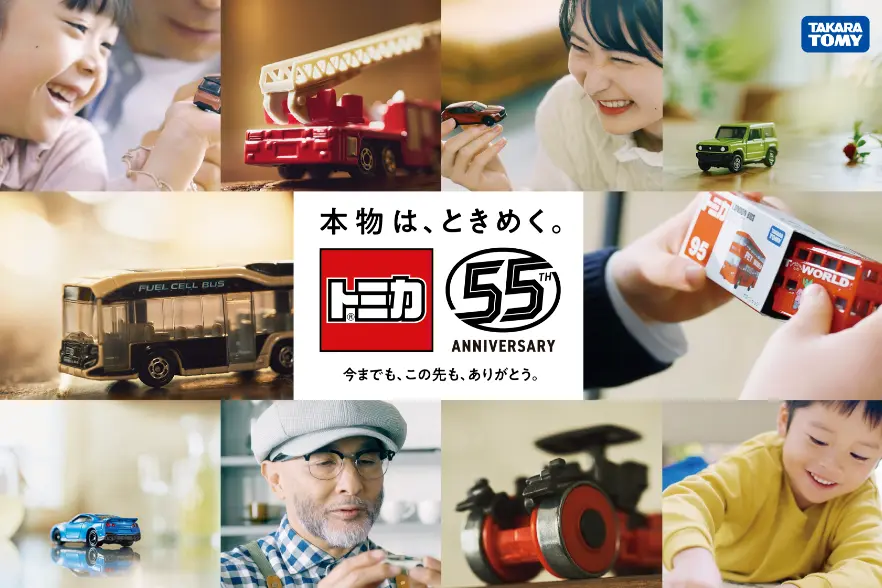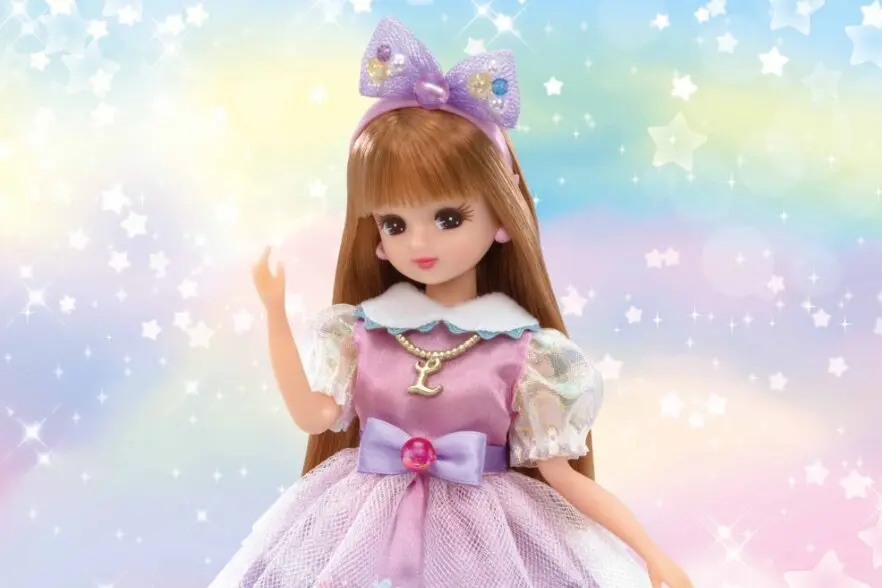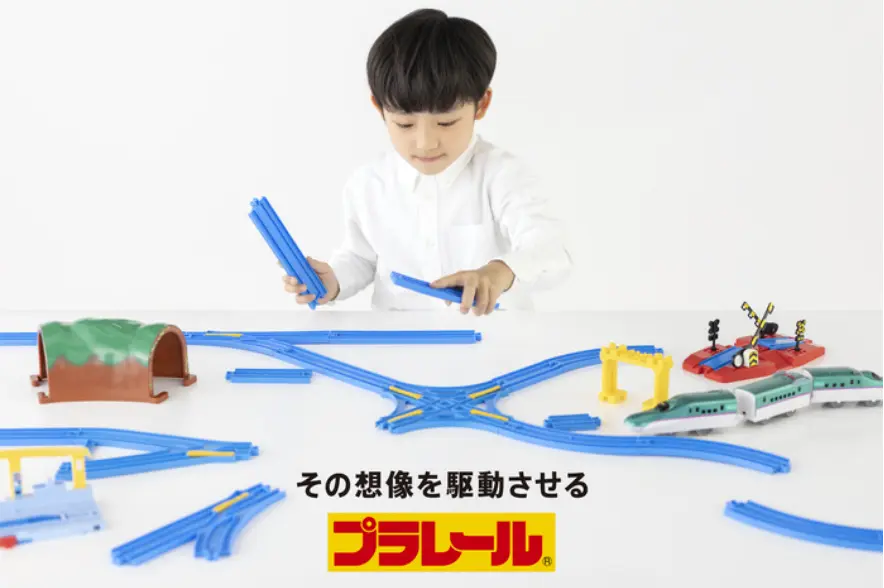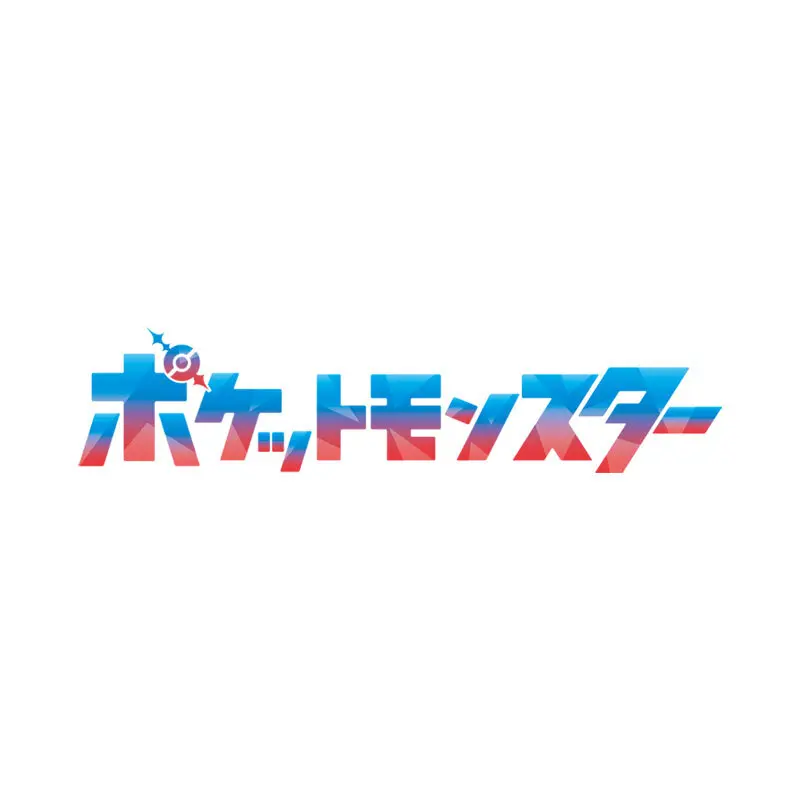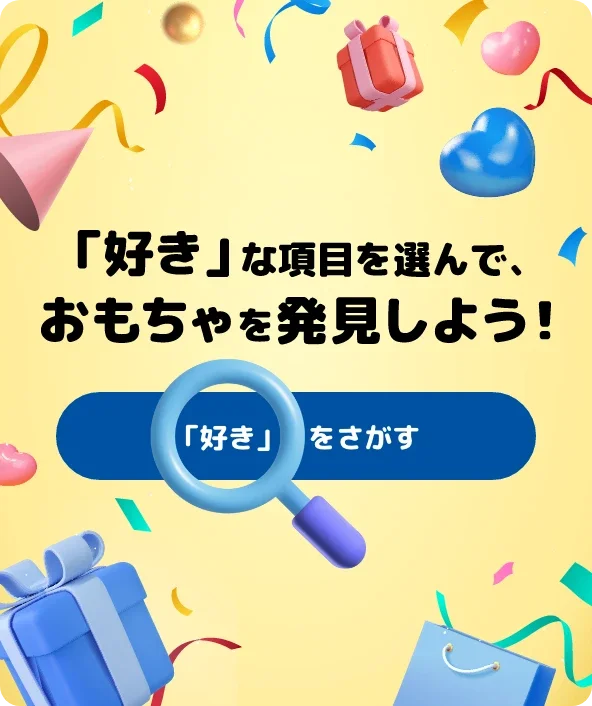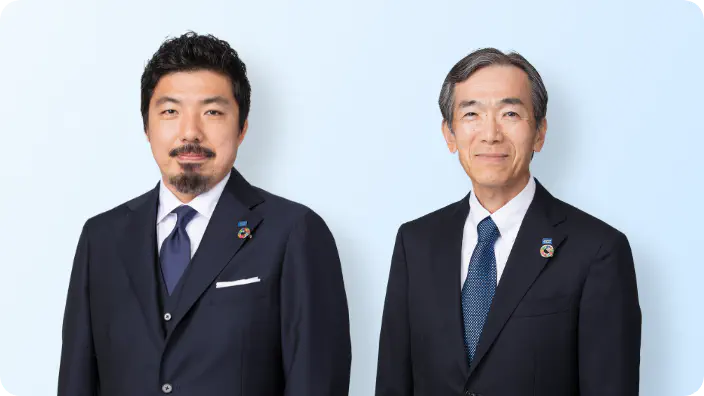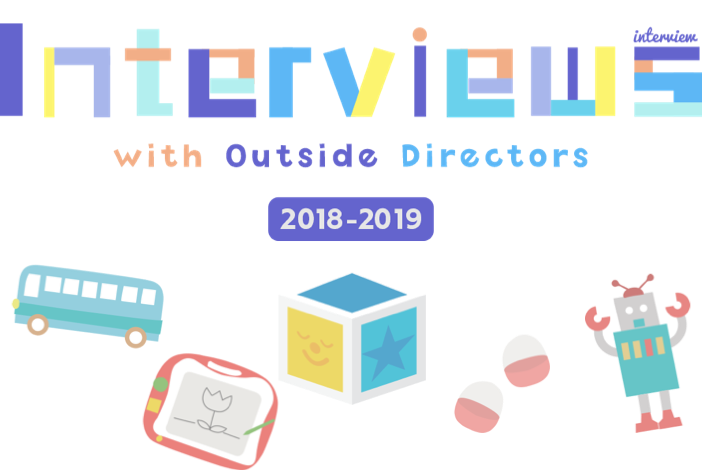The TOMY Group elects four independent outside directors, over half of the total seven directors on the board, in order to further strengthen the Group’s corporate governance system and increase its corporate value.
We asked four outside directors: Shigeyuki Mito and Mariko Mimura, who have already played key roles on the board, and Fumitoshi Sato, who was newly elected in June 2019, about a wide range of issues relating to corporate governance and sustainable growth for the TOMY Group.
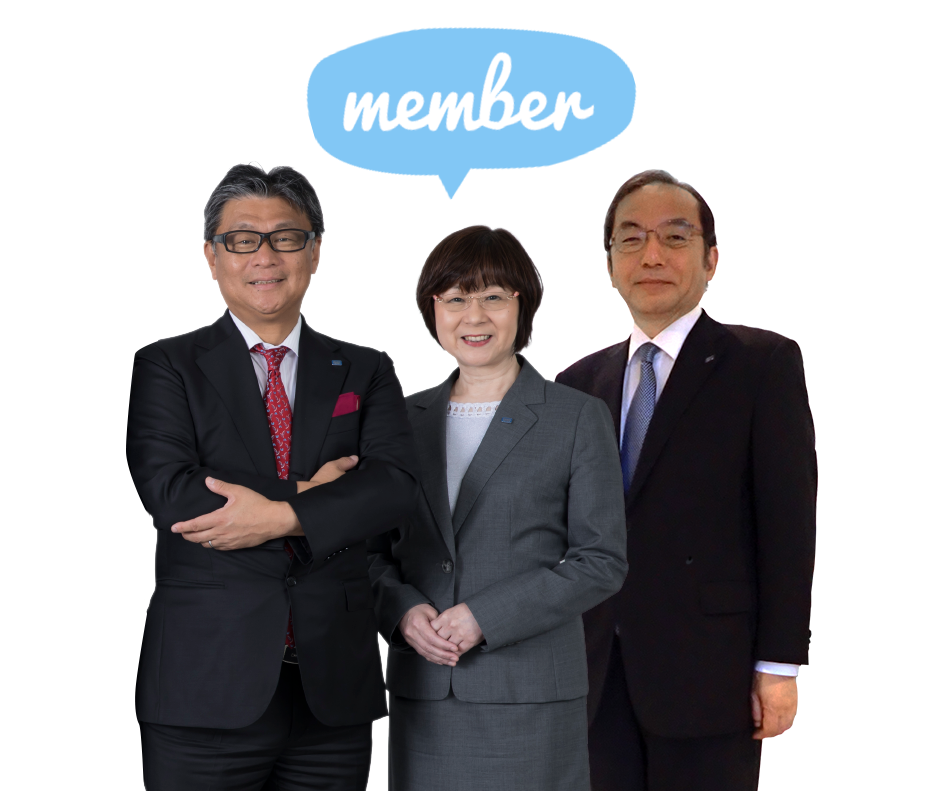
-
(released December XX, 2019)

Fumitoshi Sato
Brief resume
Born in Nagoya City, Japan
Apr. 1976
Entered The Bank of Japan
Apr. 1998
Manager, Aomori Branch,
Bank of Japan
May 2001
Manager, Fukuoka Branch,
Bank of Japan
Apr. 2004
Joined precision instrument manufacturer Horiba, Ltd.
as Managing Senior Officer
Jun. 2005
Managing Director, Horiba, Ltd.
Mar. 2017
Advisor, Horiba, Ltd.
May 2018
Auditor, Tokyo Scientific Instruments Association (to present)
Jun. 2019
Outside Board Director, TOMY COMPANY, LTD. (to present)
Jun. 2019
Outside Auditor, Azbil Corporation (to present) Please tell us about your experience and what you consider your strongest areas?
Please tell us about your experience and what you consider your strongest areas? Since graduating from university and entering the Bank of Japan, I spent time working in Hong Kong, and engaged in economic research, human resources, business planning and other departments in the Osaka branch and Tokyo head office before being promoted to manager of the Aomori and Fukuoka branches. I have been fortunate to gain a broad experience in research and analysis of local economies and talking with financial institutions. When I turned 50 in 2004, I moved to the precision instrument manufacturer Horiba, Ltd., which is headquartered in Kyoto. The following year I became managing director and head of the administrative head office, and worked for 12 years as the senior corporate officer, during which I witnessed the extremely tough post Lehman Shock period. After retiring, I returned to Tokyo and became the auditor of the Tokyo Scientific Instruments Association. In June 2019, I was selected at the general meeting of shareholders to become an outside director for TOMY COMPANY, LTD., and also began serving as outside auditor for Azbil Corporation at the same time. Azbil Corporation (formerly known as Yamatake Corporation) is a manufacturer of measuring and control equipment and Japan’s leading producer of air-conditioning control systems for large-scale facilities.
Since graduating from university and entering the Bank of Japan, I spent time working in Hong Kong, and engaged in economic research, human resources, business planning and other departments in the Osaka branch and Tokyo head office before being promoted to manager of the Aomori and Fukuoka branches. I have been fortunate to gain a broad experience in research and analysis of local economies and talking with financial institutions. When I turned 50 in 2004, I moved to the precision instrument manufacturer Horiba, Ltd., which is headquartered in Kyoto. The following year I became managing director and head of the administrative head office, and worked for 12 years as the senior corporate officer, during which I witnessed the extremely tough post Lehman Shock period. After retiring, I returned to Tokyo and became the auditor of the Tokyo Scientific Instruments Association. In June 2019, I was selected at the general meeting of shareholders to become an outside director for TOMY COMPANY, LTD., and also began serving as outside auditor for Azbil Corporation at the same time. Azbil Corporation (formerly known as Yamatake Corporation) is a manufacturer of measuring and control equipment and Japan’s leading producer of air-conditioning control systems for large-scale facilities.
As for my strengths, they would probably be my approach to macro financial economies nurtured during my time at the Bank of Japan and my knowledge of legal systems. In addition, having managed a broad range of functions in the corporate department at Horiba, Ltd. from accounting and human resources to general and legal affairs, PR, IR, CSR and occupational health and safety, I have gained not only managerial experience in areas such as internal control and compliance management, but also a wide range of useful operational experience. In addition, I experienced success and failure for over ten years as an individual shareholder in many different companies. I am keen to apply my experience to fulfilling shareholder expectations and supervising and advising TOMY management in my role as outside director.
I am a novice in the world of toys, but I remember my younger brothers playing with PLARAIL just after it was launched 60 years ago this very year. I have fond memories of fixing the carriages and rails broken by my brothers. My children and grandchildren also play with PLARAIL, so three generations of my family have enjoyed TOMY toys. What common or distinctive points do you note between high-tech precision instruments manufacturer Horiba and toymaker TOMY?
What common or distinctive points do you note between high-tech precision instruments manufacturer Horiba and toymaker TOMY? While they are both manufacturers, the two companies have very different business characteristics. Over 70% of Horiba sales are generated outside Japan and over 60% of Horiba’s 7,000 employees have nationalities other than Japanese. This is because the firm aggressively pursued globalization by acquiring various international companies from the 1990s onwards. The core bases for each business segment have members all over the world who operate as a global team. With employees from many different backgrounds, the company has successfully nurtured a corporate atmosphere that embraces diversity. I sense that TOMY also promotes a free and easy atmosphere that encourages individuality and creativity. I think both companies are similar in terms of their working environments that transform each individual’s differences into a joint strength that enables the whole company to shine, like the different-colored and different-shaped pieces of a stain glass window.
While they are both manufacturers, the two companies have very different business characteristics. Over 70% of Horiba sales are generated outside Japan and over 60% of Horiba’s 7,000 employees have nationalities other than Japanese. This is because the firm aggressively pursued globalization by acquiring various international companies from the 1990s onwards. The core bases for each business segment have members all over the world who operate as a global team. With employees from many different backgrounds, the company has successfully nurtured a corporate atmosphere that embraces diversity. I sense that TOMY also promotes a free and easy atmosphere that encourages individuality and creativity. I think both companies are similar in terms of their working environments that transform each individual’s differences into a joint strength that enables the whole company to shine, like the different-colored and different-shaped pieces of a stain glass window.
Meanwhile, as a BtoB business with a large global market share in a niche area, Horiba is involved primarily in build-to-order manufacturing. For instance, Horiba boasts an approximate 80% share of the global market for exhaust-gas measuring devices for automobile engine development and production. By contrast, TOMY is a BtoC business involved primarily in make-to-stock production. TOMY has many competitors, and would suffer an unavoidable stockpiling of inventory if its demand predictions missed the mark. While both manufacturers, the two companies experience very different business and competitive environments, so I am learning many new things here. However, there are many universal issues and common points in the corporate department, so I have been able to ease comfortably into my new role. What is your impression of TOMY’s approach to environmental, social and corporate governance (ESG)?
What is your impression of TOMY’s approach to environmental, social and corporate governance (ESG)? The TOMY Board of Directors’ meetings are certainly very lively. Different members with a vast range of specialist knowledge and experience proactively offer opinions from various perspectives. I also get to see the effective working of a board comprising a majority of outside directors. In terms of corporate governance, the important thing is not simply to strengthen internal control, but also to learn to act swiftly and flexibly in the face of rapidly changing business environments. At TOMY, as the number of outside directors has increased, we are reviewing the Board’s power in order to promote speedy management decision-making. I have also voiced several opinions on this matter.
The TOMY Board of Directors’ meetings are certainly very lively. Different members with a vast range of specialist knowledge and experience proactively offer opinions from various perspectives. I also get to see the effective working of a board comprising a majority of outside directors. In terms of corporate governance, the important thing is not simply to strengthen internal control, but also to learn to act swiftly and flexibly in the face of rapidly changing business environments. At TOMY, as the number of outside directors has increased, we are reviewing the Board’s power in order to promote speedy management decision-making. I have also voiced several opinions on this matter.
In addition, while I think TOMY’s finance, IR, human resources and other departments all work well, I feel there is room to consider how to improve stakeholder balance. In that sense, the TOMY Group founding mission and guidelines and its social responsibility framework all serve as the just and true guideposts. Right now, I understand the company is considering medium-term CSR targets and KPIs that correspond with the framework, and I would like to see the company set numerical targets in ways that only TOMY can by prizing its individuality, strengths, and ruling passions. TOMY also needs to explain succinctly to people outside the company what measures it is taking in its business activities and what quantitative changes it is implementing. While it might take time, I believe there are several areas in which TOMY could generate some strong results in terms of helping achieve the United Nation’s Sustainable Development Goals, including promoting gender equality, and reducing and recycling plastic waste. Based on your experience, what does TOMY have to do to become the “outstanding global company” advocated by company president Kazuhiro Kojima?
Based on your experience, what does TOMY have to do to become the “outstanding global company” advocated by company president Kazuhiro Kojima? TOMY enjoys a large market share in Japan and that is without a doubt a key strength. However, given the predicted shrinking and aging of Japan’s population, it is important to develop greater strength and presence in global markets. Product universality and standardization on a global scale is important in some respects, but to become global also requires the ability to offer localized products that have been adapted to suit regional market needs. In that sense, TOMY needs to be “glocal.” In order to ensure TOMY products are enjoyed in all local markets, the Group probably needs to consider many factors, such as the color of toys, the expression on dolls’ faces, and price, and must also explain its toys in a clearer way to each individual market to get consumers to embrace them fully. It will also be increasingly important to devise more ingenious ways to illustrate visually how to play with TOMY toys through YouTube videos or other means.
TOMY enjoys a large market share in Japan and that is without a doubt a key strength. However, given the predicted shrinking and aging of Japan’s population, it is important to develop greater strength and presence in global markets. Product universality and standardization on a global scale is important in some respects, but to become global also requires the ability to offer localized products that have been adapted to suit regional market needs. In that sense, TOMY needs to be “glocal.” In order to ensure TOMY products are enjoyed in all local markets, the Group probably needs to consider many factors, such as the color of toys, the expression on dolls’ faces, and price, and must also explain its toys in a clearer way to each individual market to get consumers to embrace them fully. It will also be increasingly important to devise more ingenious ways to illustrate visually how to play with TOMY toys through YouTube videos or other means.
TOMY needs a system that supports international staff and young employees in their drive to challenge markets with the greatest potential as a unified global team. It would be great fun to break free from traditional product-specific departmental barriers and tackle global markets by increasing opportunities for discussion with people both inside the company and from different industries, and collecting a diverse range of opinions that serve as hints for forging the best way forward. -
(released November 26, 2018)

Mariko Mimura
Brief resume
Apr. 1992
Joined Braun Moriya, Hoashi & Kubota Law Firm
Sep. 1993
Joined Takaishi Law Firm
Apr. 1995
Joined Nishimura Sanada Law Firm (currently Nishimura & Asahi)
Jan. 2005
Joined GE Yokogawa Medical Systems Ltd. (currently GE Healthcare Japan Corporation)
Jun. 2006
Executive Officer of GE Yokogawa Medical Systems Ltd.
Jan. 2010
Director of Novartis Holding Japan K.K.
Jul. 2015
Director of GlaxoSmithKline plc
Jun. 2018
Board Director (outside) of the Company (to present)
Aug. 2018
Of Counsel of Nishimura & Asahi (to present) Can you give us some insight into your past experience, trials and successes?
Can you give us some insight into your past experience, trials and successes? After working as a lawyer in Japanese law firms for approximately 13 years, I became an in-house corporate lawyer, which was not so common at the time in Japan. I have always been interested in business and gave advice not only on legal issues but business activities as well. For instance, when I was working as an in-house lawyer at a startup firm for implant medical devices in California, I worked with the engineers to improve the factory and helped implement technical training. That experience sparked my interest in corporate management even further. I also managed a corporate scandal case and attended a press conference to apologize the corporate misconduct. At the time, not many women bowed their heads in apology in front of TV cameras, but I believe it was an extremely valuable experience as an attorney-at-law. I have faced many difficult challenges, but, on reflection, I am grateful for all those experiences.
After working as a lawyer in Japanese law firms for approximately 13 years, I became an in-house corporate lawyer, which was not so common at the time in Japan. I have always been interested in business and gave advice not only on legal issues but business activities as well. For instance, when I was working as an in-house lawyer at a startup firm for implant medical devices in California, I worked with the engineers to improve the factory and helped implement technical training. That experience sparked my interest in corporate management even further. I also managed a corporate scandal case and attended a press conference to apologize the corporate misconduct. At the time, not many women bowed their heads in apology in front of TV cameras, but I believe it was an extremely valuable experience as an attorney-at-law. I have faced many difficult challenges, but, on reflection, I am grateful for all those experiences.
In June 2018, I became an outside director for TOMY COMPANY, LTD. To be entirely honest, I really love toys and games. Once I start a game, I could play it all night. So, naturally, I was delighted when I got offer from TOMY for this position! What is your impression of the TOMY Group’s corporate governance?
What is your impression of the TOMY Group’s corporate governance? Even for me who is used to serving on the board of multi-national companies, it was exciting to see the healthy, lively debate by outside directors and auditors of TOMY. In the few months since my appointment in June, I have attended board meetings and various other management meetings and now I understand TOMY Group business better. I look forward to providing as strong advice as other outside directors and auditors to help guide the TOMY Group in the future.
Even for me who is used to serving on the board of multi-national companies, it was exciting to see the healthy, lively debate by outside directors and auditors of TOMY. In the few months since my appointment in June, I have attended board meetings and various other management meetings and now I understand TOMY Group business better. I look forward to providing as strong advice as other outside directors and auditors to help guide the TOMY Group in the future.
I was also impressed by the exhibition room with full of historical toys from the time of Group’s foundation. After visiting the exhibition room, my (and other outside directors’) loyalty to TOMY became much stronger. How do you see your role as TOMY’s first female outside director?
How do you see your role as TOMY’s first female outside director? Of course, I must fulfill my role as a regular outside director, but I also feel a great responsibility to promote diversity as the company’s first female outside director. I want to communicate with female employees as much as possible and help build a corporate culture that enables more and more women to work at management level. If you compare companies with and without female managers, some data suggest that companies with female managers enjoy higher profitability and various other benefits. I feel that there are many highly talented women in the TOMY Group, so I would like to become a role model for those women, and convey the importance and the rewards of becoming a female manager.
Of course, I must fulfill my role as a regular outside director, but I also feel a great responsibility to promote diversity as the company’s first female outside director. I want to communicate with female employees as much as possible and help build a corporate culture that enables more and more women to work at management level. If you compare companies with and without female managers, some data suggest that companies with female managers enjoy higher profitability and various other benefits. I feel that there are many highly talented women in the TOMY Group, so I would like to become a role model for those women, and convey the importance and the rewards of becoming a female manager. You have served on the board of multi-national healthcare companies. What similarities or differences have you noted between that and the entertainment industry?
You have served on the board of multi-national healthcare companies. What similarities or differences have you noted between that and the entertainment industry? Considering the key differences first, it takes between 10 and 15 years to develop a pharmaceutical product. That gives substantial time to pharma companies to develop future product lines and make long-term plans. By contrast, the toy industry is heavily influenced by the latest trends, so it is harder to form long-term plans, and requires many different measures to be taken at relatively short notice.
Considering the key differences first, it takes between 10 and 15 years to develop a pharmaceutical product. That gives substantial time to pharma companies to develop future product lines and make long-term plans. By contrast, the toy industry is heavily influenced by the latest trends, so it is harder to form long-term plans, and requires many different measures to be taken at relatively short notice.
The similarity is a focus on safety and quality management. In the pharmaceutical industry, product quality has a direct influence on the health of human beings, and can even be a matter of life or death. In the toy industry we always have to imagine every possible unforeseen action by children. Thus, to ensure product safety and quality is our important mission. For that reason, I will pay attention to product manufacturing processes. For example, use of forbidden chemical substances or child labor at some companies outside Japan had been a huge issue. Those cases are absolutely unacceptable because our aim is to create toys to make children happy. I appreciate TOMY Group employees are keenly aware of such issues, and I want to play my part in helping promote further activities. Today, supplier due diligence and information disclosure are common practice among multi-national companies, but there are still few companies in Japan that adhere to such similar standards. I want TOMY, as a company that seeks to be friends with children around the world, to be able to state with pride that it has a proper procedure in place. My mission as an outside director is to help nurture a corporate culture that is committed to robust governance and compliance as well as to the spirit of the United Nations Guiding Principles on Business and Human Rights, and SDGs. Based on your business experience, what does the TOMY Group need to do to become the “outstanding global company” advocated by company president Kazuhiro Kojima?
Based on your business experience, what does the TOMY Group need to do to become the “outstanding global company” advocated by company president Kazuhiro Kojima? I am aware that the TOMY Group has just started to build a framework for implementing its global strategy. The multi-national companies that I have worked in the past have strong control on individual local business by maintaining robust report lines between the employees of local business and headquarters in the United States or Europe. For instance, local lawyers in the legal affairs directly reported to the General Counsel of the headquarters, so that robust control was well maintained to avoid any significant divergence from head office policy. In contrast, the headquarters of many Japanese companies tend to leave the management of individual local business up to overseas subsidiaries, and exert little control over them. Since TOMY’s headquarters in Japan has significantly large sales among the group and a lot of experience in the business, I believe the headquarters can exert stronger leadership over international subsidiaries, not only in operational matters but also in compliance, legal affairs and corporate responsibility. I personally have huge respect for Japanese-style management practices, but Japanese “intuition” may not necessarily work in global markets. That is why I think systematic management control will become increasingly important as TOMY develops its global operations further. I believe TOMY’s future global strategy will be extremely successful.
I am aware that the TOMY Group has just started to build a framework for implementing its global strategy. The multi-national companies that I have worked in the past have strong control on individual local business by maintaining robust report lines between the employees of local business and headquarters in the United States or Europe. For instance, local lawyers in the legal affairs directly reported to the General Counsel of the headquarters, so that robust control was well maintained to avoid any significant divergence from head office policy. In contrast, the headquarters of many Japanese companies tend to leave the management of individual local business up to overseas subsidiaries, and exert little control over them. Since TOMY’s headquarters in Japan has significantly large sales among the group and a lot of experience in the business, I believe the headquarters can exert stronger leadership over international subsidiaries, not only in operational matters but also in compliance, legal affairs and corporate responsibility. I personally have huge respect for Japanese-style management practices, but Japanese “intuition” may not necessarily work in global markets. That is why I think systematic management control will become increasingly important as TOMY develops its global operations further. I believe TOMY’s future global strategy will be extremely successful. -
(released October 22, 2018)
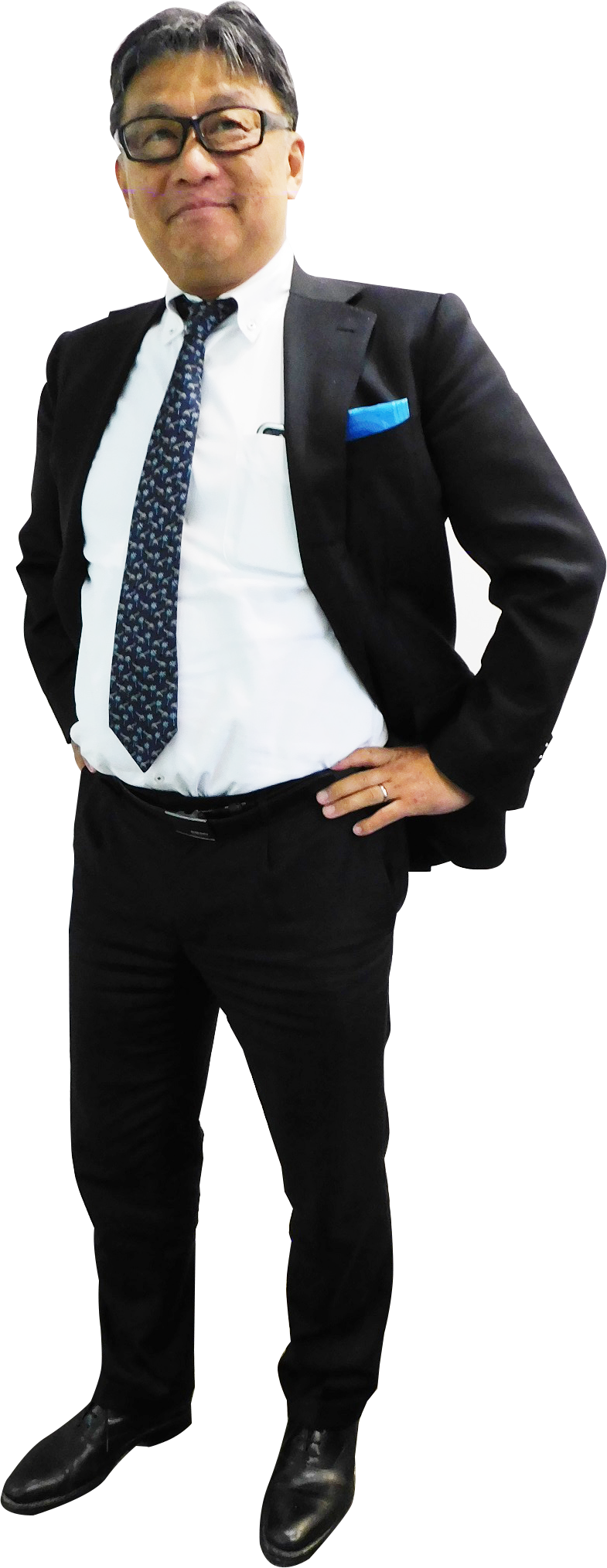
Shigeyuki Mito
[Brief resume]
Apr. 1989
Registered as Attorney at Law of Dai-Ichi Tokyo Bar Association
Oct. 1990
Participated in the Establishment of TMI Associates
Apr. 1999
Partner of TMI Associates (to present)
Jun. 2002
Outside Corporate Auditor of Takara Co., Ltd
Dec. 2002
Outside Corporate Auditor of TYO Inc.
Mar. 2006
Audit & Supervisory Board Member (outside) of the Company
Apr. 2006
Instructor of Waseda University Graduate School of Sport Sciences (to present)
May 2006
Outside Corporate Auditor of Broccoli Co., Ltd. (to present)
Jun. 2006
Outside Corporate Auditor of Yoshimoto Kogyo Co., Ltd.
Jan. 2010
Director of Shonan Bellmare Co., Ltd. (to present)
Dec. 2013
Instructor of University of Tsukuba Graduate School of Business Sciences (Business Law) (to present)
Jun. 2015
Board Director (outside) of the Company (to present)
Jun. 2016
Outside director of Yoshimoto Kogyo Co., Ltd. (to present)
Jun. 2016
Outside auditor of Nippon Columbia Co., Ltd.
Apr. 2018
Visiting professor of Musashino University School of Law (to present)
Jul. 2018
Outside director of Faith, Inc. (to present) Could you share some of your past experience and specialist field with us?
Could you share some of your past experience and specialist field with us? I have served for TOMY as an outside auditor since 2006 and an outside director since 2015. I use my specialist knowledge as a lawyer to help not only the TOMY Group but other companies in the entertainment and sports businesses. Both businesses impress people and need special attention to contract-related items. In the entertainment business, protecting intellectual property is extremely important, so I offer the companies specialist advice on copyright and trademarks from a legal perspective. In the sports business, I conduct contract negotiations with baseball teams on behalf of professional players and advise a J-League soccer club on their management. I also need to know how the league works, and about the rules of the sports world, such as the draft system and free agents, etc.
I have served for TOMY as an outside auditor since 2006 and an outside director since 2015. I use my specialist knowledge as a lawyer to help not only the TOMY Group but other companies in the entertainment and sports businesses. Both businesses impress people and need special attention to contract-related items. In the entertainment business, protecting intellectual property is extremely important, so I offer the companies specialist advice on copyright and trademarks from a legal perspective. In the sports business, I conduct contract negotiations with baseball teams on behalf of professional players and advise a J-League soccer club on their management. I also need to know how the league works, and about the rules of the sports world, such as the draft system and free agents, etc. Looking back, how have governance-related elements changed over your tenure?
Looking back, how have governance-related elements changed over your tenure? I feel that we have managed to establish firm systems and approaches that make it easier for outside directors to voice aggressive opinions, and create a freer, more open company. Today, we have an active exchange of diverse views even on newly proposed items. We outside directors use our external experience and individual expertise to voice their concerns and suggest alternative plans. Now, this year, we welcome the addition of Mariko Mimura as a female outside director. From a diversity perspective, I am sure she will bring a breath of fresh air to the proceedings. I also want to be learning something new, not just repeating what I have done so far.
I feel that we have managed to establish firm systems and approaches that make it easier for outside directors to voice aggressive opinions, and create a freer, more open company. Today, we have an active exchange of diverse views even on newly proposed items. We outside directors use our external experience and individual expertise to voice their concerns and suggest alternative plans. Now, this year, we welcome the addition of Mariko Mimura as a female outside director. From a diversity perspective, I am sure she will bring a breath of fresh air to the proceedings. I also want to be learning something new, not just repeating what I have done so far. Based on your experience, what does the TOMY Group need to do to become the “outstanding global company” advocated by company president Kazuhiro Kojima?
Based on your experience, what does the TOMY Group need to do to become the “outstanding global company” advocated by company president Kazuhiro Kojima? Toys tend to strongly reflect local culture, and so developing toys for international markets is no easy feat for any company in the industry. In that sense, Japanese culture is relatively similar to other Asian countries, so there is a greater chance that our toys will be more readily embraced in Asia. We are already pursuing a symbolic global IP strategy, but it would be better to have a greater volume and variety of toys to work with. It isn’t easy, but we encourage the young employees to challenge themselves to come up with many new interesting ideas for toys.
Toys tend to strongly reflect local culture, and so developing toys for international markets is no easy feat for any company in the industry. In that sense, Japanese culture is relatively similar to other Asian countries, so there is a greater chance that our toys will be more readily embraced in Asia. We are already pursuing a symbolic global IP strategy, but it would be better to have a greater volume and variety of toys to work with. It isn’t easy, but we encourage the young employees to challenge themselves to come up with many new interesting ideas for toys.
As the Group’s operations becoming increasingly global, I think diversity is one of the most significant keywords. I feel that social awareness of diversity is changing rapidly. It might be difficult to hastily transform all internal systems, but we should seek to repeatedly transform awareness. It is important to encourage discussion and boost awareness within the company of such issues as how to empower people of different nationalities, ethnicities, genders including LGBT, and abilities and disabilities, and to keep a close eye on social attitudes toward these issues. What strengths should the TOMY Group draw on and what issues should they address in order to contribute to society through toys?
What strengths should the TOMY Group draw on and what issues should they address in order to contribute to society through toys?
*esports is short for electronic sports. According to the Japan esports Union (JeSU) official site, in the broad sense, esports refers to all entertainment, competition and sports games played on electronic devices, and also includes battles played on computer games and video games. The TOMY Group’s strength is in its ability to deliver toys that children enjoy to many places around the world. Thanks to their design prowess and brand power as a toy manufacturer, many children recognize the company name. Another entertainment company, where I also serve as an outside director, actively uses brand awareness and comedy performance to raise public awareness on the UN’s sustainable development goals (SDGs) and revitalize local communities. They consider it as an investment in the future by getting both children and adults involved. The TOMY Group is already involved in regional development projects in its founding area of Katsushika, Tokyo, but I think we could promote further collaboration by utilizing the brand power to help solve social problems. I believe this would lead to more solid, deep-rooted business development in individual countries and regions.
The TOMY Group’s strength is in its ability to deliver toys that children enjoy to many places around the world. Thanks to their design prowess and brand power as a toy manufacturer, many children recognize the company name. Another entertainment company, where I also serve as an outside director, actively uses brand awareness and comedy performance to raise public awareness on the UN’s sustainable development goals (SDGs) and revitalize local communities. They consider it as an investment in the future by getting both children and adults involved. The TOMY Group is already involved in regional development projects in its founding area of Katsushika, Tokyo, but I think we could promote further collaboration by utilizing the brand power to help solve social problems. I believe this would lead to more solid, deep-rooted business development in individual countries and regions.
At the same time, in addition to the IP strategy I mentioned earlier, we also need to promote digital business. It is vital that we provide products and services that suit the latest generation of children who have been immersed in IT through smartphones and other devices since a very young age. Furthermore, companies that are not direct competitors right now might become potential rivals. For instance, competitive sport was defined as rule-based physical activity, but that does not apply to the esports* that have become extremely popular of late. Up until now, many people might have thought of esports as not a real sport but something more along the lines of chess or go. However, those activities are now defined as intellectual sports, broadening the sports market. When it comes to toys, while we might consider original analog toys as the fundamental base, maybe we should attempt to expand the toy market more avidly by including digital and other innovative features. I believe venturing into wider realms could help further develop their prized free thought and design prowess.

